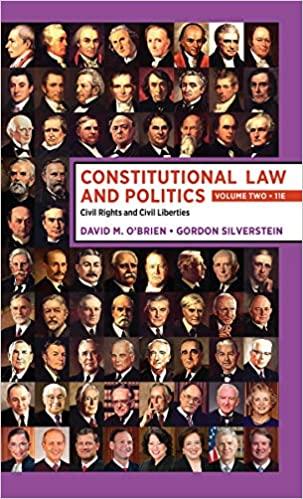Question
James Stilton is the chief executive officer (CEO) of RightLiving, Inc., a company that buys life insurance policies at a discount from terminally ill persons
James Stilton is the chief executive officer (CEO) of RightLiving, Inc., a company that buys life insurance policies at a discount from terminally ill persons and sells the policies to investors. RightLiving pays the terminally ill patients a percentage of the future death benefit (usually 65 percent) and then sells the policies to investors for 85 percent of the value of the future benefit. The patients receive the cash to use for medical and other expenses, the investors are "guaranteed" a positive return on their investment, and RightLiving profits on the difference between the purchase and sale prices. Stilton is aware that some sick patients might obtain insurance policies through fraud (by not revealing the illness on the insurance application). Insurance companies that discover this will cancel the policy and refuse to pay. Stilton believes that most of the policies he has purchased are legitimate, but he knows that some probably are not. Using the information presented in this chapter, answer the following questions.
1. Would a person who adheres to the public disclosure testconsider it ethical for Stilton not to disclose the potential risk of cancellation to investors? Why or why not?
2. Using the universalization test, are the actions of RightLiving, Inc. ethical? Why or why not?
3. Using the W-H Process of EthicalDecision Making reviewedin this chapter, discuss the decision process Stilton should use in deciding whether to disclose the risk of fraudulent policies to potential investors.
Step by Step Solution
There are 3 Steps involved in it
Step: 1

Get Instant Access to Expert-Tailored Solutions
See step-by-step solutions with expert insights and AI powered tools for academic success
Step: 2

Step: 3

Ace Your Homework with AI
Get the answers you need in no time with our AI-driven, step-by-step assistance
Get Started


